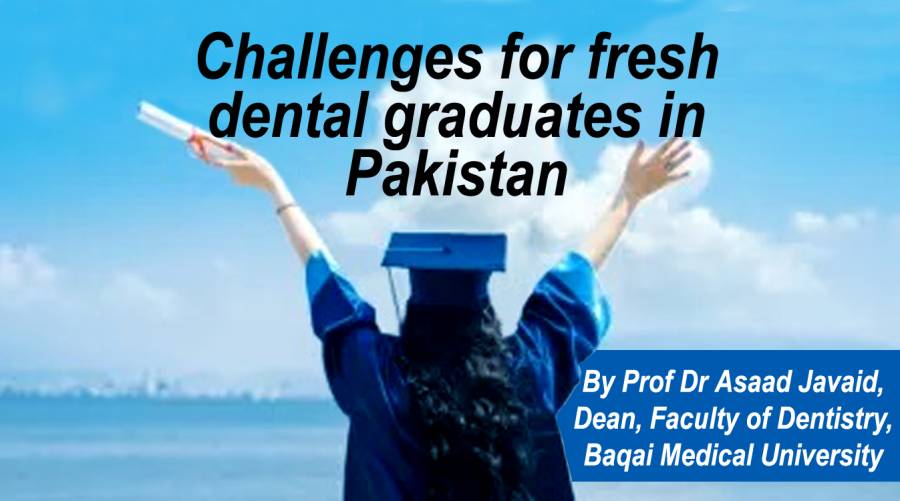
Despite making strides over the last three decades world over, it is regrettable that dentistry remains a neglected sector in Pakistan, mainly because of a lack of dentists’ representation in policy making bodies like the Pakistan Medical and Dental Council (PMDC).
Because of the government’s incapacity to cater to dental health needs of a fast growing population the private sector was encouraged to come forward and share the responsibility.
Till 1990, there were just four dental institutions in the country run by provincial governments, but due to the entry of the private sector in the arena, now 48 dental schools registered with PMDC are functioning, with more than 3,000 dentists graduating every year.
A fresh graduate starting his or her professional life often gets disillusioned because despite putting a lot of hard work into education, they find poor employment prospects. Their main employers include government hospitals, armed forces health wing, dental colleges and NGOs, including charity organizations.
Though the public sector and armed forces offer handsome salary packages to dentists, they offer limited vacancies due to budget constraints.
Academia prefers dentists having postgraduate academic qualifications, while others are appointed as demonstrators and lecturers with low salary packages which are insufficient to make both ends meet.
NGOs and charity organizations may accommodate general dentists; again, to a limited number where they hardly earn an average salary of Rs20000-25000 per month.
This dismal situation forces many of the graduating dentists to opt for sales representative jobs in the pharmaceutical industry or dental supplies corporations for better pay packages. Many others get hospital management degrees (MBA) and start working as hospital managers or get employed as teachers in medical colleges.
Usually, dentists who can afford time and money go for an MPhil/ PhD in medical education or basic medical sciences to be accommodated in medical institutions.
Some dental postgraduates complain of discrimination by employers for teaching jobs though PMDC and HEC don’t impose such restrictions. The situation makes a majority of the graduates and postgraduates attempt to find jobs abroad or seek higher foreign education.
Opening a dental clinic is another option for these professionals, but in Pakistan, the imposition of higher taxes on dental units and gadgets, along with high costs of dental equipment and materials owing to the decline in the rupee’s value against the dollar, has made it difficult for most of them as one requires Rs5 million to Rs10 million to run an independent clinic here.
To resolve these issues the governments should take a proactive role in understanding the needs and challenges of junior dentists. Collaboration with dental associations is essential to develop policies supporting the progress of private dental practices.
This collaboration can extend to the facilitation of access to funding through programmes offering low-interest loans or grants specifically tailored for dentists establishing their clinics.
Partnerships with financial institutions can be formed to create dental practice startup loans.
Financial incentives, such as tax breaks, grants, or subsidies, should be provided to dentists establishing clinics in rural or socioeconomically deprived urban areas. Additionally, investment in infrastructure supporting dental clinics is crucial. Establishing dental facilities in underserved areas with shared facilities for multiple practitioners can reduce costs and enhance employment opportunities.
Addressing the lack of dental health insurance in the country is imperative. Implementation of policies for the general public, ensuring fair reimbursement to private clinics for their services, can encourage more dentists to participate in private practice.
Prioritising the implementation of a national oral health policy is essential, with a focus on strengthening dental care services.
The issue of quackery in Dentistry in Pakistan must be tackled, as unqualified practitioners negatively impact the lives of patients. Combating quackery will create opportunities for registered dentists to establish their practices.
Policy makers should consider the matter with deeper insight and prioritise oral health, as evidenced by the disproportionately small budget allocated annually. It is crucial to recognise and address oral health as a significant public health concern in Pakistan.

By Prof. Dr Asaad Javaid
Dean, Faculty of Dentistry, Baqai Medical University

